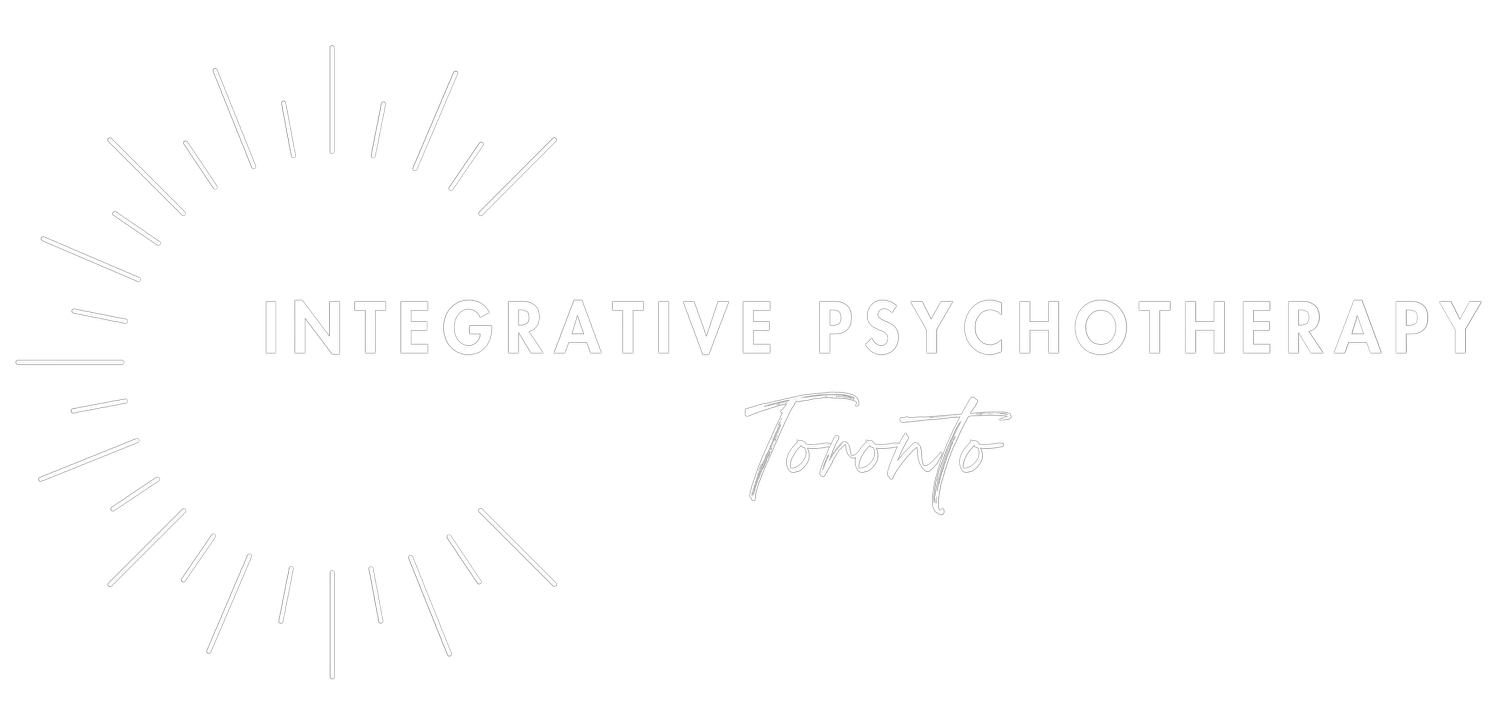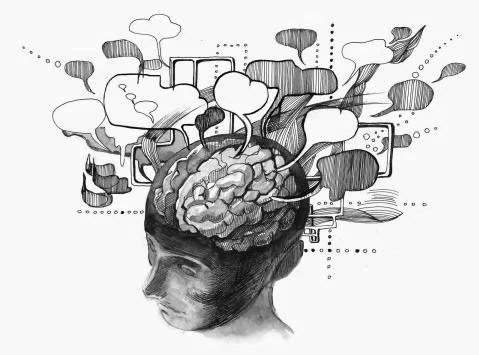“Depression: When nothing seems to matter”
Depression can feel like a never-ending cycle of sadness, exhaustion, and hopelessness. It can drain the joy out of everyday life, leaving you feeling disconnected and overwhelmed by a sense of heaviness. At Integrative Psychotherapy Toronto, we provide compassionate, evidence-based therapy to help you break free from the grip of depression and find your way back to a life that feels meaningful and fulfilling.
If you’ve been feeling stuck in the darkness of depression—whether it’s a lingering sadness or a complete loss of interest in the things you once loved—there is a path forward. Our integrative approach addresses depression at its core, helping you heal not just mentally, but emotionally and physically as well.
What is Depression?
Depression isn’t just a fleeting feeling of sadness. It is a complex condition that involves the nervous system, affecting how the brain and body respond to stress, emotions, and even everyday life. For many, depression is linked to a state of nervous system dysregulation, where the body remains stuck in a freeze or shutdown mode. This can lead to a pervasive sense of numbness, fatigue, and emotional disconnection.
What Depression Looks and Feels Like
Depression manifests in different ways for different people. While some experience the classic symptoms of low moodand fatigue, others may carry what’s known as high-functioning depression, where they can meet daily demands but feel persistently drained and detached inside. In some cases, individuals may have treatment-resistant depression, where conventional therapies or medications don’t seem to provide relief.
Common Mental, Emotional, and Physical Symptoms
Mental Symptoms:
Persistent negative thoughts: A constant cycle of hopelessness, self-doubt, or guilt. The mind may get stuck in thoughts like "I'm not good enough" or "Nothing will ever get better"
Difficulty concentrating: You may feel scattered, unable to focus, or forgetful. Even simple tasks can seem overwhelming.
Chronic over-planning or perfectionism: This might be a way to feel some control in the midst of emotional chaos. Many people over-plan or constantly critique themselves without realizing it’s tied to their depression.
Emotional Symptoms:
Deep sadness or numbness: Some feel an overwhelming sadness, while others may feel emotionally disconnected or numb—unable to feel joy or sorrow.
Feelings of worthlessness or guilt: A sense of failure, often feeling undeserving of love or support. This can lead to social withdrawal and isolation.
Irritability or frustration: Often overlooked, irritability can be a significant symptom of depression, leading to conflicts with loved ones or feelings of guilt after lashing out.
Physical Symptoms:
Fatigue or low energy: Depression can make it feel impossible to get out of bed or complete daily tasks. Even after a full night’s sleep, you may feel exhausted
Changes in appetite or sleep: Some people experience weight gain or loss due to increased or decreased appetite. Similarly, sleep disturbances, including insomnia or oversleeping, are common
Chronic pain or body aches: Physical symptoms like headaches, back pain, or other aches can be tied to depression, with no apparent physical cause.
High-Functioning Depression
High-functioning depression is when you outwardly manage your life—work, relationships, and responsibilities—while battling a constant inner struggle. You may appear successful, organized, or even happy, but internally, you feel drained, disconnected, or emotionally exhausted. This form of depression is often overlooked because it doesn’t match the stereotypical image of someone "unable to cope."
Unrecognized Symptoms of Depression
Some symptoms of depression can go unnoticed or be misunderstood as personality traits. These can include:
Chronic overthinking or self-criticism: An ongoing inner dialogue that fixates on mistakes or perceived shortcomings.
Perfectionism: The need to control your environment by being overly prepared or critical of yourself, often driven by an underlying sense of inadequacy.
Constant overwhelm: Even small tasks can feel impossible, leading to avoidance, procrastination, or extreme fatigue
Recognizing these signs of depression—both obvious and subtle—is an important first step in getting the help you need.
Our Psychotherapists
BECAUSE TOGETHER WE REACH FURTHER
How Therapy For Depression Works
Therapy helps address both the emotional and physiological roots of depression by working to regulate the nervous system, reframe negative thought patterns, and heal unresolved trauma. At Integrative Psychotherapy Toronto, we offer a range of therapies that address depression at its core, using evidence-based techniques that go beyond traditional talk therapy.
We also understand that depression is not always just depression. Often, depression is linked with other mental health conditions like anxiety, PTSD, and trauma. Many people who experience depression also struggle with unresolved trauma or chronic stress, and treating these underlying issues is key to achieving long-term healing. We understand that depression is complex, and we work to address all contributing factors, whether emotional, psychological, or physiological.
Benefits of Depression Treatment in Toronto
Depression affects not only your mood but also your body, relationships, and overall ability to function in daily life. Psychotherapy offers more than just temporary relief—it provides long-term tools for healing and growth. By addressing the emotional, physical, and psychological aspects of depression, therapy can help you regain a sense of balance and purpose. Below are some of the core benefits you can experience through psychotherapy for depression.
Improved mood and emotional regulation: Therapy helps you develop the tools to manage low moods and overwhelming emotions.
Increased resilience: By addressing the root causes of depression, you’ll gain strength to cope with life’s challenges.
Nervous system regulation: Body-based therapies like Somatic Therapy and DBR help regulate the nervous system, reducing the physical and emotional weight of depression.
Better relationships: As your mood stabilizes, you may find that your relationships improve as you become more emotionally available and present.
What Types of Therapy are Helpful for Depression?
Dealing with depression can be overwhelming, but there are various therapeutic approaches that can help manage it effectively. At Integrative Psychotherapy Toronto, we incorporates several trauma-informed, body-based therapies that work holistically to heal both mind and body, such as;
EMDR (Eye Movement Desensitization and Reprocessing): EMDR is highly effective for depression, especially when it's linked to trauma or negative self-beliefs. By reprocessing painful memories, EMDR helps alleviate the weight of unresolved emotional pain
Somatic Therapy: This body-based approach helps release emotional tension and trauma stored in the body, which often accompanies depression
Internal Family Systems (IFS): IFS works by healing the different parts of the self, particularly the parts that may hold onto guilt, shame, or unprocessed emotions tied to depression
Deep Brain Reorienting (DBR): DBR helps access and process deep-rooted physiological responses to trauma that are linked to depression, promoting nervous system regulation and emotional healing
What to Expect in Depression Therapy
At Integrative Psychotherapy Toronto, we offer a holistic, neuroscience-based approach to depression treatment. Our therapists use an integrative model, combining therapies like EMDR, Somatic Therapy, Internal Family Systems, and Breathwork to create a personalized plan tailored to your needs. We believe that healing is a collaborative journey, and our compassionate, skilled therapists are here to support you every step of the way.
What makes us different is our ability to blend the latest neuroscience with compassionate care. We don’t just treat symptoms—we help you understand and heal the underlying causes of depression, empowering you to rediscover hope and well-being.
In a session for depression, you can expect a compassionate, collaborative approach that focuses on:
Understanding your symptoms: We will explore how depression manifests in your mind, body, and emotions.
Developing personalized strategies: You'll learn techniques to manage depressive symptoms, such as grounding exercises and nervous system regulation tools.
Healing underlying causes: Through Somatic Psychotherapy, EMDR, IFS, and DBR, we’ll address any trauma, anxiety, or unresolved emotional pain contributing to your depression
Frequently Asked Questions About Depression
What is the best type of therapy for depression?
At Integrative Psychotherapy Toronto, we recommend nervous-system based, trauma-informed therapies like EMDR, Somatic Therapy, and Internal Family Systems for effective depression treatment.
How long does it take to see results from therapy for depression?
The timeline varies for each individual. Some clients notice improvements within a few sessions, while others may need more time to address deep-rooted issues.
Is depression therapy covered by insurance?
Yes, our therapy services are typically covered by most insurance plans in Ontario. We recommend checking with your provider for specific coverage.
Can therapy help with treatment-resistant depression?
Yes, our integrative approach can be especially helpful for individuals with treatment-resistant depression by addressing both the emotional and physiological aspects of the condition
How does depression therapy work at Integrative Psychotherapy Toronto?
We use an integrative, neuroscience-based approach to therapy, incorporating techniques like EMDR, DBR, and Somatic Therapy to provide holistic and personalized care
Ready to Break Free from the Weight of Depression?
If you’re ready to take the first step toward healing from depression, Integrative Psychotherapy Toronto is here to help.
Contact us today to schedule a consultation and explore how our integrative approach can bring lasting relief and help you rediscover a sense of hope and well-being.













